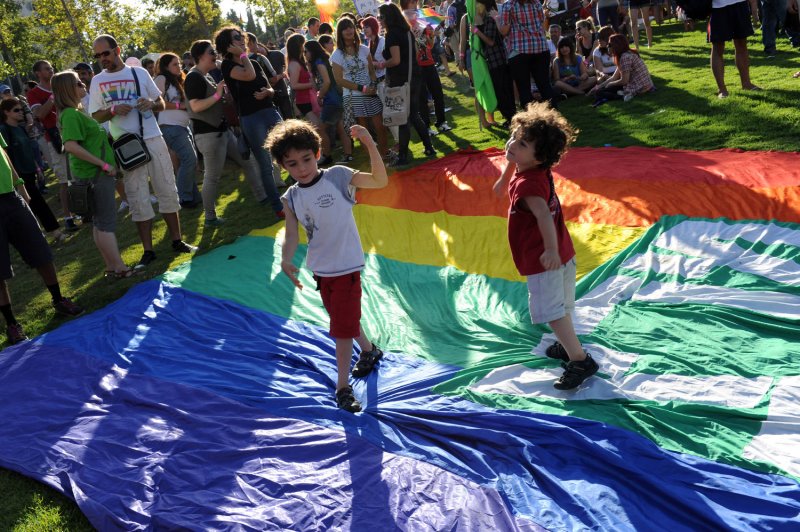1 of 4 | Israeli children dance on a large rainbow flag before the annual Jerusalem Parade for Gay Pride and Tolerance in central Jerusalem, July 28, 2011. UPI/Debbie Hill |
License Photo
HOUSTON, Oct. 3 (UPI) -- How much outdoor play a U.S. child gets is determined by the amount of fear his mother has -- and mothers with low incomes have more fear, researchers found.
Study co-authors Rachel Tolbert Kimbro of Rice University and doctoral student Ariela Schachter at Stanford University tested maternal, household and neighborhood characteristics that may be related to maternal fear and discovered a woman's household economic status, education, employment and physical/mental health all influence maternal fear.
The researchers found:
-- Perception of a neighborhood's collective efficacy -- shared values and goals, social support -- is associated with maternal fear. Mothers who believe they live in neighborhoods with shared values and goals are less likely to be fearful of their child playing outdoors, and vice versa.
-- Poverty and the percentage of blacks in a neighborhood are associated with increased maternal fear.
"It's not entirely surprising that poverty aligns with greater maternal fear," Kimbro said in a statement. "When considering the characteristics associated with many impoverished neighborhoods -- lack of playgrounds, poor sidewalks and the potential for crime -- it makes sense that mothers might be more fearful."
However, the fear of children playing outside is not completely rational, Kimbo said.
The study, published in the journal Family Relations, found although neighborhood poverty strongly influences maternal fear, mothers of sound mental health living in impoverished areas are less likely to be fearful of their children playing outside.
"Our results suggest that efforts to minimize depression among mothers living in poverty could have significant, positive impacts on parenting behaviors and particularly in the promotion of children's outdoor play," Kimbro said.















